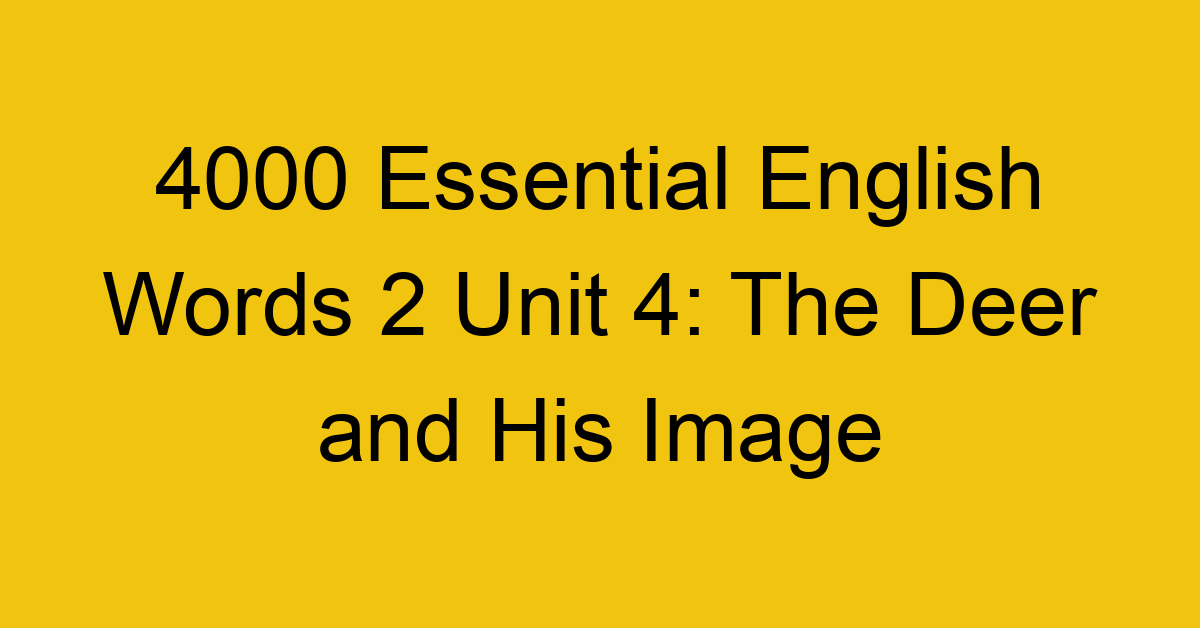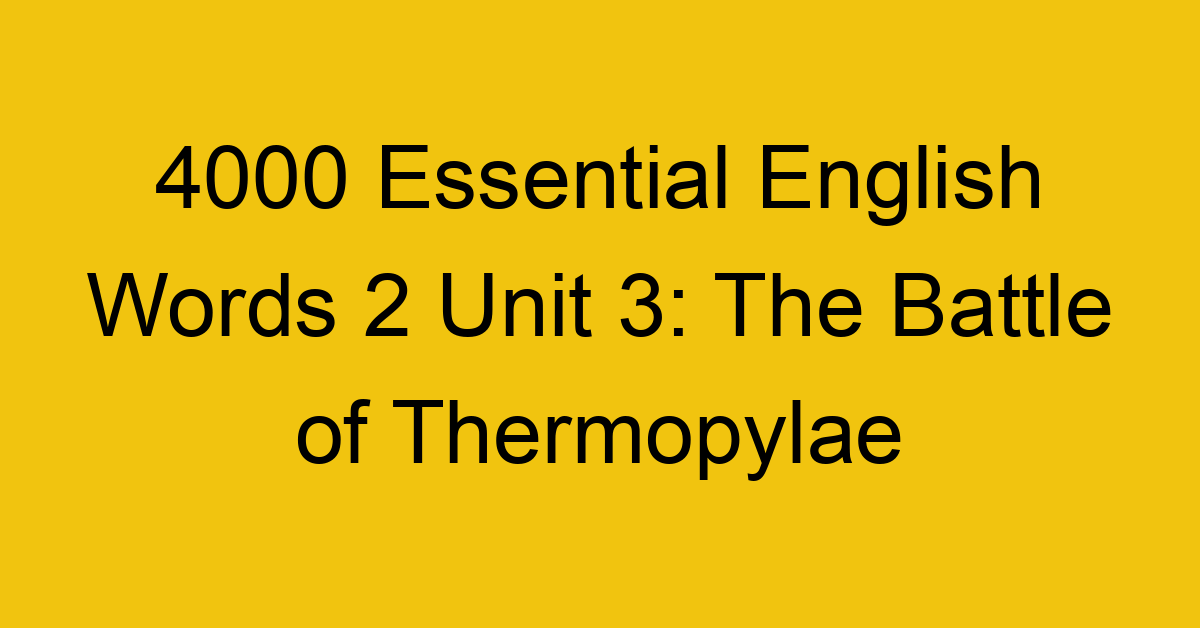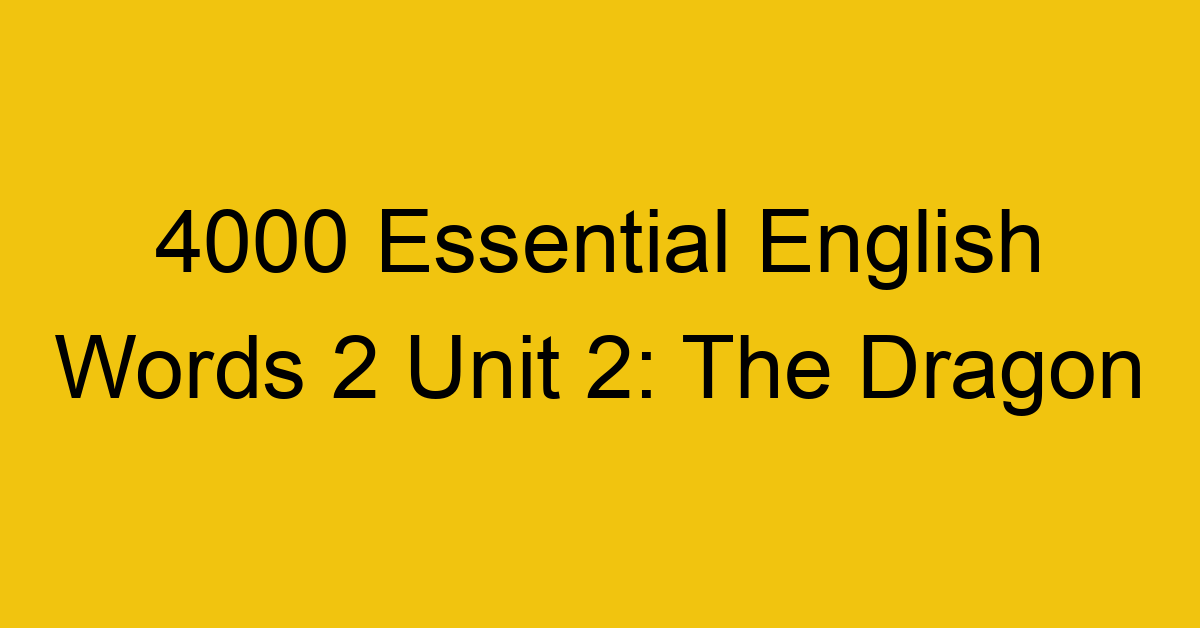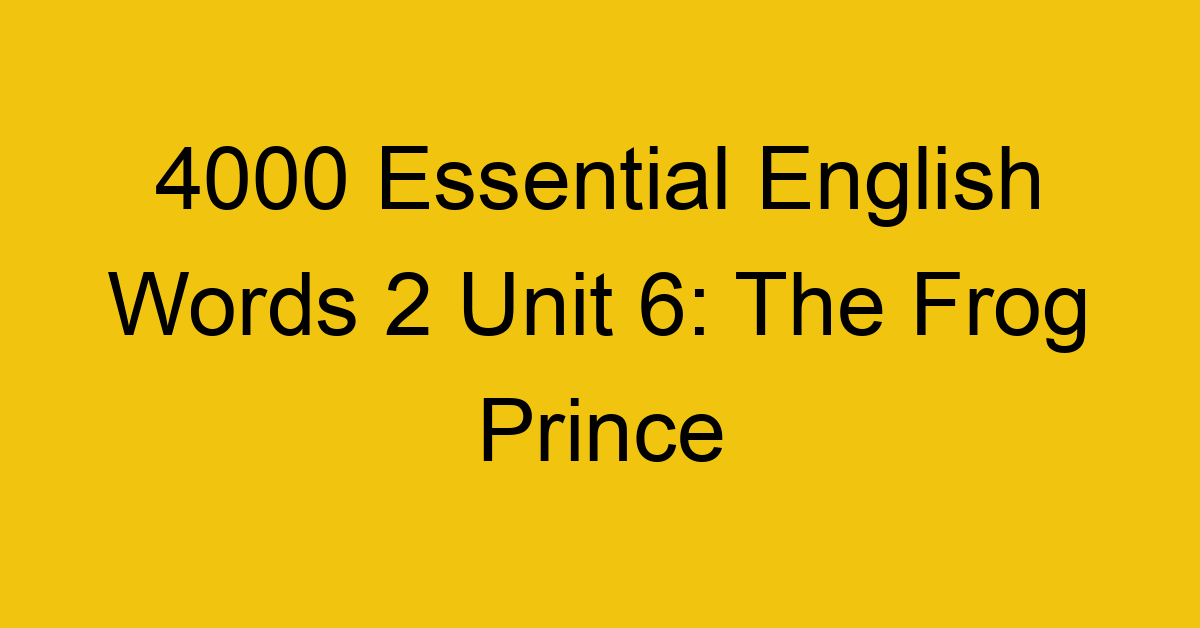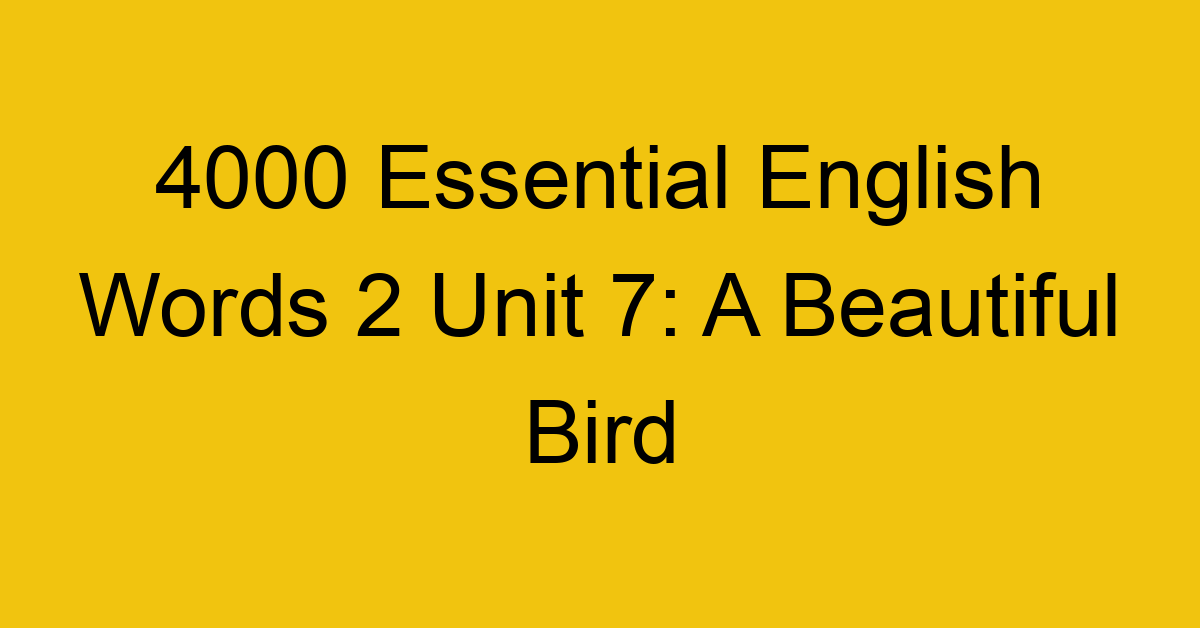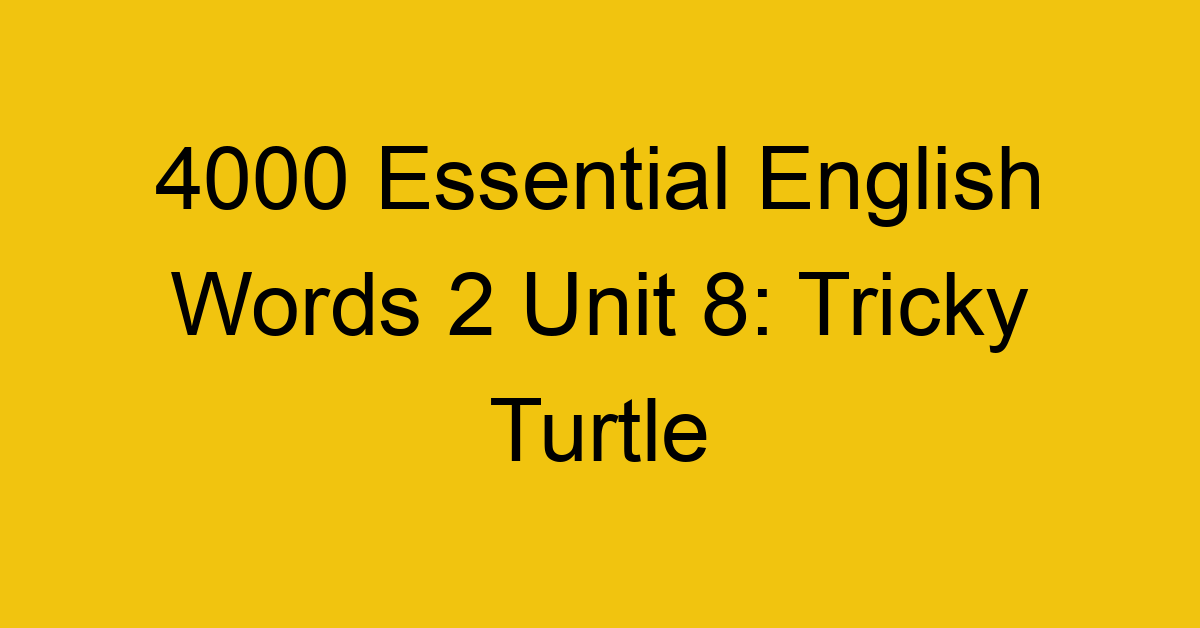4000 Essential English Words 2 Unit 5: May 29,1953
classWord List
- ancestor [ˈænsɛstə] n.
An ancestoUnit 5: A Bet
Word List
- alternate [ˈɔ:ltərneit] v.
To alternate means to switch back and forth between two things.
→ The best exercise alternates muscle and heart strengthening.
- apologetic [əˌpɒləˈdʒetik] adj.
If someone is apologetic, they are sorry about something.
→ The boy felt apologetic after losing his sister’s favorite toy.
- benign [biˈnain] adj.
If something or someone is benign, they do not hurt anyone.
→ Many spiders look scary, but most are actually benign.
- char [tʃɑːr] v.
To char means to burn something so that it turns black.
→ While Frank went inside to get the mustard, he accidentally charred the hotdogs.
- clarify [ˈklærəfai] v.
To clarify means to make something easier to understand by explaining it.
→ Drew tried to clarify all the functions of Michelle’s new computer.
- dogged [ˈdɔ(:)gid] adj.
When someone’s actions are dogged, they try hard to continue something.
→ Her dad bought her a new jacket after her dogged requests for one.
- distress [disˈtres] n.
Distress is the feeling of being upset or worried.
→ Failing a class caused the student a lot of distress.
- ensue [inˈsuː] v.
To ensue means to happen after something.
→ After a few minutes of lightening, thunder ensued.
- gasp [gæsp] v.
To gasp means to make a noise by quickly breathing in when surprised.
→ John always gasps when watching a scary movie.
- negotiate [niˈgouʃieit] v.
To negotiate means to try to make an agreement through discussion.
→ Mario and Joe took a long time negotiating the contract between the companies.
- overdose [ˈouvərdous] n.
An overdose is an instance of taking or having too much of something.
→ John’s skin was burned from an overdose of sunshine.
- persuasion [pərˈsweiʒən] n.
Persuasion is the act of making someone do or believe something.
→ The persuasion of his argument convinced the customer to buy the laptop.
- relay [ˈriːlei] n.
A relay is a race in which teams of runners or swimmers race against each other.
→ Jerry was the fastest on his team, so he ran the last part of the relay.
- reluctance [riˈlʌktəns] n.
Reluctance is a feeling of not wanting to do something.
→ Jesse took out the trash with great reluctance.
- restate [riːˈsteit] v.
To restate something means to say it again or in a different way.
→ Mrs. Jones restated the test question to the class.
- sesame [ˈsesəmi] n.
Sesame is an herb that is grown for its small seeds and its oil.
→ I used the buns with the sesame seeds on them.
- sip [sip] v.
To sip something means to drink a small amount at a time.
→ Liza relaxed on the beach, sipping fruit juice through a straw.
- verge [vəːrdʒ] n.
The verge is the point at which something is about to happen.
→ Joan was on the verge of leaving her house when the phone rang.
- wary [ˈwɛəri] adj.
If someone is wary, they are cautious or mistrusting.
→ She was wary of going to school because she hadn’t done her homework.
- waver [ˈweivə:r] v.
To waver is to be unable to decide between two choices.
→ I wavered between eating the apple or the cake for a snack.
r is a family member from the past.
→ My ancestors came from Germany. - angle [æŋgl] n.
An angle is the direction from which you look at something.
→ The giraffe turned its head to see from another angle. - boot [buːt] n.
A boot is a heavy shoe that goes over your ankle.
→ He wore boots so that his feet wouldn’t get wet. - border [ˈbɔːrdər] n.
A border is the edge of an area.
→ The postcard had a pretty green border of pine needles. - congratulate [kənˈgrætʃəleɪt] v.
To congratulate someone is to tell them that you are happy for them.
→ Bill and Angela congratulated each other on a job well done. - frame [freɪm] n.
A frame is a border for a picture or mirror.
→ I have to get a frame for my friend’s picture. - heaven [ˈhɛvən] n.
Heaven is the place that some people believe people go when they die.
→ When I die, I hope that I go to heaven. - incredible [ɪnˈkredəbl] adj.
If someone or something is incredible, it is hard to believe they are true.
→ I have an incredible story to tell you about my vacation. - legend [ˈledʒənd] n.
A legend is a story from the past.
→ There is a well-known legend about a king and his queen. - praise [preɪz] v.
To praise is to show that you like someone or something.
→ The coach praised both athletes after a good practice. - proceed [prəˈsiːd] v.
To proceed is to go in a certain direction.
→ My son and I proceeded to the beach so we could go fishing. - pure [pjʊər] adj.
If something is pure, it is very clear and beautiful.
→ The rose was pure. It had no dirt or imperfections. - relative [ˈrelətɪv] n.
A relative is a family member.
→ My relatives came by to see the new baby. - senior [ˈsiːnjər] adj.
If one is senior, they are the oldest or have been there the longest.
→ Because he got his job first, Bob is the senior - silent [ˈsaɪlənt] adj.
If someone or something is silent, they make no sound.
→ Since no one was home, the house was silent. - sink [sɪŋk] v.
To sink into something is to slowly fall into it.
→ The boat had a hole in it, and it sank into the ocean. - superior [səˈpɪəriər] adj.
If someone or something is superior, they are better than another.
→ I think cooking outdoors is superior to cooking indoors. - surround [səˈraʊnd] v.
To surround something is to close in on it from all sides.
→ We surrounded the suspect on all four sides. - thick [θɪk] adj.
If something is thick, it is wide and solid.
→ The fog was so thick that I couldn’t see through it. - wrap [ræp] v.
To wrap is to cover something on all sides.
→ I wrapped his gift and put a bow on it.

